9 Enterprise 2
Section outline
-
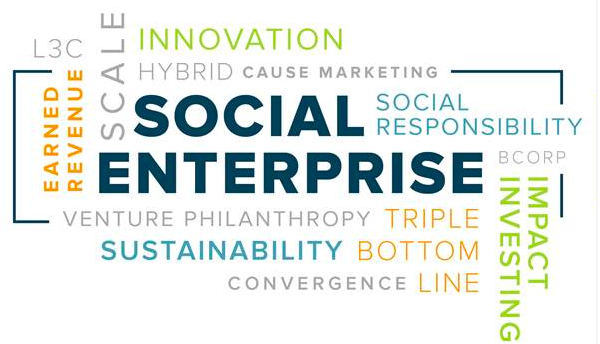
Kia Ora and a very warm welcome everyone to Social Enterprise!
During the first week we are going to get to know each other better and look at the course expectations.
Our learning outcome for this week is to be able to understand the definition of Social Enterprise and to be familiar with the different concepts in Enterprise.
Enjoy the first week back and remember to keep an open mind about new ideas (think outside the box). I am sure we will enjoy our learning journey together and make great progress!
Mrs Gao
Contents -
Main AO:
- Understand how people seek and have sought economic growth through business, enterprise, and innovation.
Sub AO'S:
-Understand how economic decisions impact on people, communities, and nations.
- Understand how people’s management of resources impacts on environmental and social sustainability.
- Understand how cultural interaction impacts on cultures and societies.
- Understand how systems of government in New Zealand operate and affect people’s lives, and how they compare with another system.
Learning Intentions: We are learning to (WALT)...
Understand the definition and concepts that tie in with our subject of Social Enterprise.
Identify and Understand the qualities of enterprising people.
Provide examples of entrepreneurs and enterprising people around the community,NZ and the world.
Success Criteria: I can/have...
Understood the concept of social enterprise and the qualities of enterprising people.
I can recognise the qualities of an enterprising person and could apply most of them to my everyday activities.
Promotion
Watch a Ted Talk video on Social enterprise
& https://www.ted.com/talks/bill_gates_the_next_outbreak_we_re_not_ready?language=en
Activities:
Define words related to enterprise- vocab box
How enterprising are we? Brainstorm the qualities of an enterprising person.
Challenge 1- paper task
Reflections/debriefing of the task
https://www.youtube.com/watch?v=faIFNkdq96U -Caines Arcade
Identify enterprising qualities in different people in and around the community/world.
Toms shoes -example - http://www.toms.com/what-we-give
Social Entrepreneurs -http://www.forbes.com/impact-30/list.html
https://en.wikipedia.org/wiki/List_of_social_enterprises
Follow Up Tasks:
Find articles relating to enterprising people in NZ.
-
Kia ora everyone
Learning Intentions: We are learning to (WALT)...
- Identify how many enterprise skills we have as an individual.
- Discover collaboration of groups leads to the success of a product
- Discover the work of successful entrepreneurs
Success Criteria: I can/have...
- Now identify the skills I need to work on in order to be enterprising
- Work well with others(different people) in order to complete a task
- Identify some enterprising skills used by these successful entrepreneurs.
Activities:
Go to https://www.forbes.com/impact-30/list.html and explore the profiles of a range of entrepreneurs.
Define the term "entrepreneur"
Identification of skills by these successful global entrepreneurs.
Slideshow on social entrepreneurs and social enterprise
- https://www.youtube.com/watch?v=Kx9tizvS8NY
- Debriefing and reflection from paper challenge 1 -rate each group
- Solar energy entrepreneurs:http://climate energy.blogs.panda.org/2014/08/20/renewable-energy-indian-entrepreneurs-use-power-solar/
-

Kia Ora
For our third week for enterprising studies we will analyzing how innovation is a fundamental quality for entrepreneurs. We will also have a look at different case studies of Kiwi enterprising and entrepreneurs.
Learning Intentions: We are learning to (WALT)...
- To describe and define what it means to be innovative, enterprising and entrepreneurial.
- To describe how the directors apply a range of enterprising attributes to achieve their goals.
Success Criteria: I can/have...
- I have understood the concept of enterprise , innovation and the qualities enterprising people have.
- I can recognize such qualities and apply them to my everyday activities.
Motivation
Watch a Kiwi social enterprise story on https://www.youtube.com/watch?time_continue=6&v=0tCcqa9n73w&feature=emb_logo&disable_polymer=true
Activities:
Discuss with the class what the term “innovation‟ means.
- https://www.youtube.com/watch?v=5WiDIhIkPoM - Facebook creator
- NZ Entrepreneurs : Books and websites.
- Interesting articles linked to the concept of innovation - https://www.weforum.org/agenda/2019/02/brick-by-lego-brick-teen-builds-his-own-prosthetic-arm?fbclid=IwAR3aWsa7wm-2BEdMWBhIS70O1RyLH5IsHxOXQy9gKD2tNqW7mmofrcsp6bc&utm_campaign=Facebook+Video+Blogs&utm_medium=Facebook+Videos&utm_source=Facebook+Videos
- https://www.weforum.org/agenda/2018/08/indian-start-up-wants-to-make-attacks-on-women-a-concern-of-the-past?fbclid=IwAR0MfqtwCgHGfqKAbM2Q6nQNqAPZwvFQ6WP-ESgf6bctrgfr4wmo7tn3Yis&utm_campaign=Facebook+Video+Blogs&utm_medium=Facebook+Videos&utm_source=Facebook+Videos
- Items to bring in for Challenge 2
-
Learning Intentions: We are learning to (WALT)...
Develop understanding of the process of production
Success Criteria: I can
Identify and explain the four factors of production
Give examples of the four factors
Activities
Factors of Production
The inputs in the production process can be divided into four categories called the factors of production.

In order for something to be considered a factor of production they must actually be used in the production of the actual good or service that is being produced. Consequently, a customer would not be a factor of production because they do not help to make the product.
Task One:
Match the following terms and definitions. Copy them into your book.
Resources
Production process
Capital
Labour
Land
Entrepreneurship
Man made goods used in the production of goods and services
Occur in nature and are used in the production of goods and services
The steps involved in producing a good or a service.
The people responsible for organising all of the resources needed in production.
The inputs used in the production process.
The work of people in the production process.
Task Two: Write the heading “A Hair Salon” at the top of your page.
Sort the following into the four factors of production for a Hairdressing Salon:



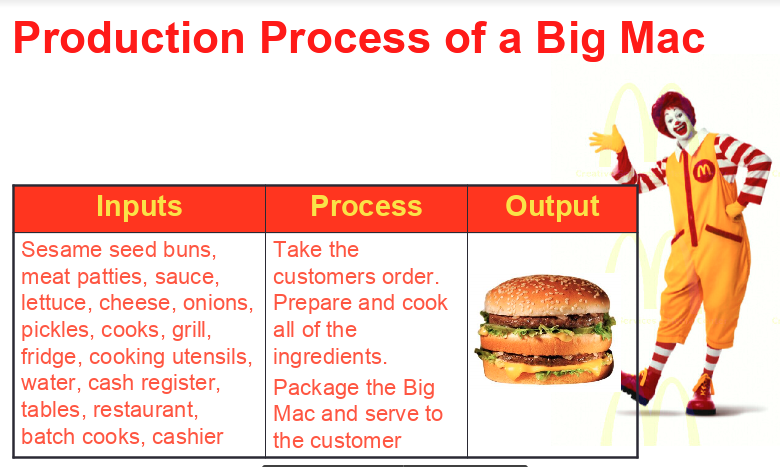
Task Three
Use a whole page in your books to draw a flow diagram that shows the production process (INPUTS – PROCESS – OUTPUT) for ONE of the products below:
A CD for a music album (artist or group of your choice)
A ball dress
A product or service of your choice
Your diagram should begin with a list of all the inputs used in production. Be sure to include, people, equipment and materials needed.
The process should include at least 5 illustrated steps in production.
-
Innovation - continued
Kia ora everyone
This week we will continue exploring business innovations all over the world and discuss how enterprising people use their creativity and turn their ideas into a reality.
Learning Intentions: We are learning
how people sought economic and social wealth growth through business, enterprise, and innovation
Success Criteria: I can
Analyse a business and identify the key features of that business
Motivation
A great quiz by the Asia New Zealand Foundation about the different
Asian inventions, eg, why was the umbrella invented (10
questions).
https://www.asianz.org.nz/quiz/asian-inventions/
Activities:
Read through the following three innovative businesses
A great initiative from a woman who has taken upon herself to recycle old pool toys into bags.
https://thespinoff.co.nz/business/20-01-2020/meet-the-woman-
turning-your-old-pool-toys-into-bags/
2. No checkouts, no cash needed – the new Amazon Go stores
calculate all that you buy via face recognition and then charge the
amount to your credit card when you walk out the door. Watch the
4min YouTube video at
3.“Tinners” a product for gamers on Christmas Day when they do not
want to leave their gaming to have a Christmas dinner – instead it comes in a tin https://www.nzherald.co.nz/index.cfm?objectid=12292389&ref=twitter
4. All Heart NZ won a “NZI Sustainable Business Network Award” for setting up a social enterprise to reuse and recycle corporate waste.
Analyse how each business
1. Developed their innovative ideas. What was the innovation? Who was/were involved? What needs were met? What issues were addressed?
2. Turned the idea into action. What resources did they need? What steps did they take to start their business/enterprise? What were the challenges? How did they deal with the challenges?
3. Made an impact on the economy, environment, people and the community. What was the outcome of the business? Was it financially independent and sustainable?
You can use your selected graphic organiser to answer all the questions.
-
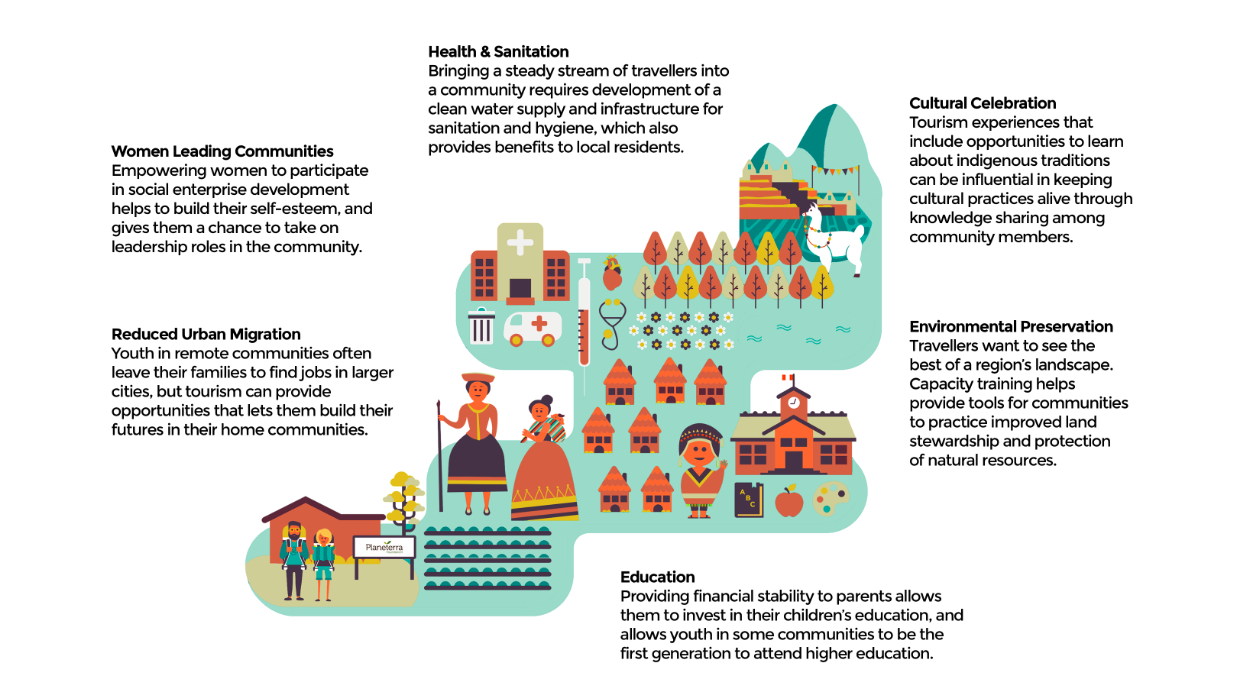
Learning Intentions: We are learning
how people sought economic and social wealth growth through business, enterprise, and innovation
Success Criteria: I can
Analyse a business and identify the key features of that business
Identify the impact of a social enterpise on the economy, environment, people and the community.
Activities
Listen to a National Radio podcast of an interview with the founder of social enterprise G Adventures, Bruce Poon Tip.
Watch a short video on https://planeterra.org/project-100/ and learn about Project 100.
Go to https://planeterra.org/ and explore their social enterprise projects.
-
Year 9 Enterprise Assessment 1 2020
Achievement Objectives:
Understand how people seek and have sought economic growth through business, enterprise, and innovation.
Task: PROFILE OF AN ENTREPRENEUR
Choose an entrepreneur or any person that you believe is enterprising and prepare a profile of the person on a pamphlet or poster.
The profile should include:
Texts and visual images, and any relevant background and interesting information about the person.
At least three enterprising qualities you believe have helped this person to be successful.
You should include a simple definition of the qualities;
then justify your choice by giving examples of how this person has displayed these characteristics.
Your writing is in T.E.X.A.S. style.
This is an individual assessment. The due date is Monday, 6 April 2020.

-
We are working on our assessment this week.
You might find the following information/links useful.
https://literarydevices.net/
auditory-imagery/ 
Tips
Choose an entrepreneur, not just a famous person. Focusing on this person’s enterprising qualities, rather than other qualities, which have made a business or a social enterprise (a charity, etc) successful.
Don’t forget to define/describe the quality in your own words first, before your start to prove that the entrepreneur has demonstrated that quality.
Use real examples from reliable sources (e.g. government websites, a published book, etc) to support your point of view. Your hypothesis, opinion or elaboration are not considered as examples. To get “beyond” grade, you need to discuss a range of enterprising qualities (normally 3 +) and use several good examples (around 3) for each quality.
Quality over quantity. Just having included more than three qualities in your writing doesn’t warrant you a “ beyond” grade. You need to discuss “in depth” the qualities with relevant and strong examples. Don’t repeat the same example in discussing different qualities - it makes your argument weak.
Plagiarism. Be careful not to copy and paste from the internet. You need to rephrase in your own words.
-

Welcome back to Term 2 Week1!
Although we are in Lockdown our learning doesn’t stop.
We will continue working on our assessment this week.
You have all been invited to a ZOOM meeting with me on Wednesday. Feel free to ask any questions about the assessment.
Achievement Objectives
- Understand how people seek and have sought economic growth through business, enterprise, and innovation.
Learning Intentions: We are learning to (WALT)...
Identify the enterprise skills we need to develop in order to be entrepreneurs
Success Criteria: I can/have...
Identify some enterprise skills possessed by successful entrepreneurs.
Compare myself with successful entrepreneurs and find the gaps
Activities
1. Watch a Ted Talk video on a teen entrepreneur
2. Complete attached task “How Enterprising Are You?”
-
Kia Ora Everyone
Main AO:
- Understand how people seek and have sought economic growth through business, enterprise, and innovation.Sub AO'S:-Understand how economic decisions impact on people, communities, and nations.
- Understand how people’s management of resources impacts on environmental and social sustainability.
- Understand how cultural interaction impacts on cultures and societies.
- Understand how systems of government in New Zealand operate and affect people’s lives, and how they compare with another system.
Learning Intentions: We are learning to (WALT)...
- Understand the definition and concepts that tie in with our subject of Social Enterprise.
- Identify and Understand the qualities of enterprising people.
- Provide examples of entrepreneurs and enterprising people around the community,NZ and the world.
Success Criteria: I can/have...
- Understood the concept of social enterprise and the qualities of enterprising people.
- I can recognise the qualities of an enterprising person and could apply most of them to my everyday activities.
Activities:
Task on Google Classroom, "Your Enterprising Qualities".
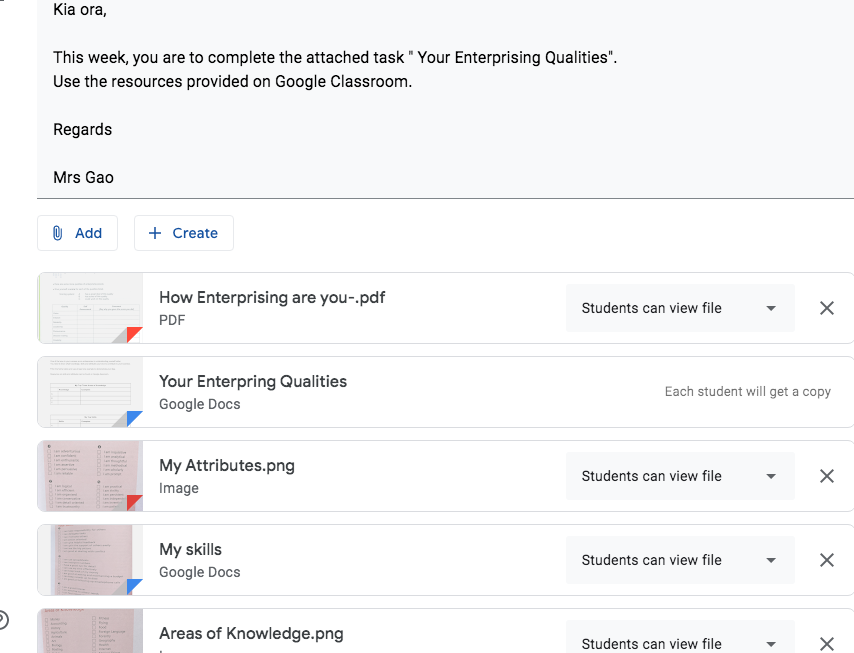
-

Learning Intentions: We are learning to (WALT)...
Identify the enterprise skills we need to develop in order to be entrepreneurs
Success Criteria: I can
Describe some enterprising qualities ( creativity & innovation )
Explain how to foster creativity and develop good ideas
Activities
Motivation. Play a Kahoot Game on https://create.kahoot.it/details/c66c5def-9626-4860-890e-0c8b04c26b8c
Watch a Youtube video on
2.Draw a picture to show how a good idea came into being.
-
Kia Ora Everyone
Learning Intentions: We are learning to (WALT)...
- To describe and define what it means to be innovative, enterprising and entrepreneurial.
- To describe how the directors apply a range of enterprising attributes to achieve their goals.
Success Criteria: I can/have...
- I have understood the concept of enterprise , innovation and the qualities enterprising people have.
- I can recognize such qualities and apply them to my everyday activities.
Activities:
- Hidden Hazard task activity
-
Kia Ora Everyone
Learning Intentions: We are learning to (WALT)...
- Understand non profit organisations
Success Criteria:
- Understand the link between non profit organisations and Social Enterprise
Activities:
Prepare for Options Evening - Social Enterprise
Brainstorm non profit organisations - Write a summary on a chosen non profit organisation using the 5W's and H.
-
Kia Ora EveryoneLearning Intentions: We are learning to (WALT)...
- To display and showcase our creativity skills through creating a product
Success Criteria: I can/have...
- I have produced a innovative product that responds to a community challenge.
Activities
- Presenting your Assessment in pairs.
-
Learning Intentions: We are learning about (WALT)...
the importance of innovations and creations in a new product
Success Criteria: I can
Identify the characteristics of an innovation
Explain the process of how an idea was turned into an innovation
Activities
Innovation Task Two
Select a product of your interest and make a Google slideshow to demonstrate the evolution of that product. This task has been uploaded onto your Google classroom.

-

Learning Intentions: We are learning (WALT)...
To explore local problems and challenges
Success Criteria: I can
Identify problems people are facing in the local community.
Explain the 17 Global Goals for sustainable development
Activities
Watch a video of the launching of the first commercial spaceship into space
https://mp.weixin.qq.com/s/tDQ58XfwNQK3wCmLJZnkBw
Watch a promotion video of a programme for young New Zealand innovators
In groups, brainstorm the problems people are facing in the local community. Make sure you aim to work towards achieving the global goals.
In your Enterprise workbook, list a range of local issues you would like to solve and write down what global goals they relate to.
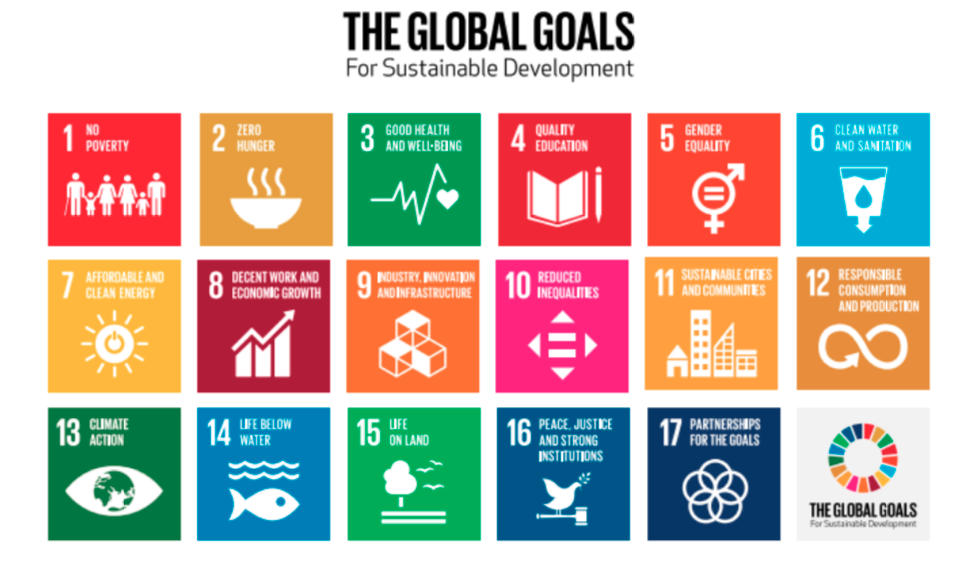
-
Learning Intentions: We are learning about
Different business roles in an enterprise
Success Criteria: I can
Describe the functions of different business roles
Form a business team according to our strengths and skills
Activities
You are going to set up an enterprise with five essential roles: the Chief Executive Officer, the Marketing Director, the Operations and Production Director , the Communications Director, and the Finance Director.
Describe in detail what is expected of each role
Find an example of each role and explain what that person did to fit into that role
Write up a one-page CV to compete for one of the roles. Your CV should include your areas of knowledge, your skills, your attributes and extra information about you, such as hobbies and previous work experience which might help you to land the role.
-

Learning Intentions: We are learning to
Set up and manage a team
Success Criteria: I can
Form a business team according to our strengths and skills
Make our team run smoothly
Activities
Pass everybody’s CVs around the team. Each team member is to read the CV and write down on the back of the CV which of the roles you think he/she is best suited to (you may write down up to two roles for each CV you have read). You are not allowed to write on your own CV.
Once everybody has finished, find out what role(s) other members thought you should be doing.
- Have your first team meeting. At the meeting you need to
Discuss the roles in your team and keep a record of it. Make sure everyone understands and agrees with what is expected of them so that they will be held accountable for their tasks.
Discuss the team goals.
Draft a simple rule for team meetings to avoid conflict ( who is going to take minutes for the meetings? Who will be the chairman of the meeting? How do you deal with disagreements?”)
-
Learning Intentions: We are learning to
Set up and manage a team
Success Criteria: I can
Keep records of our meetings
Make a mission statement
Activities
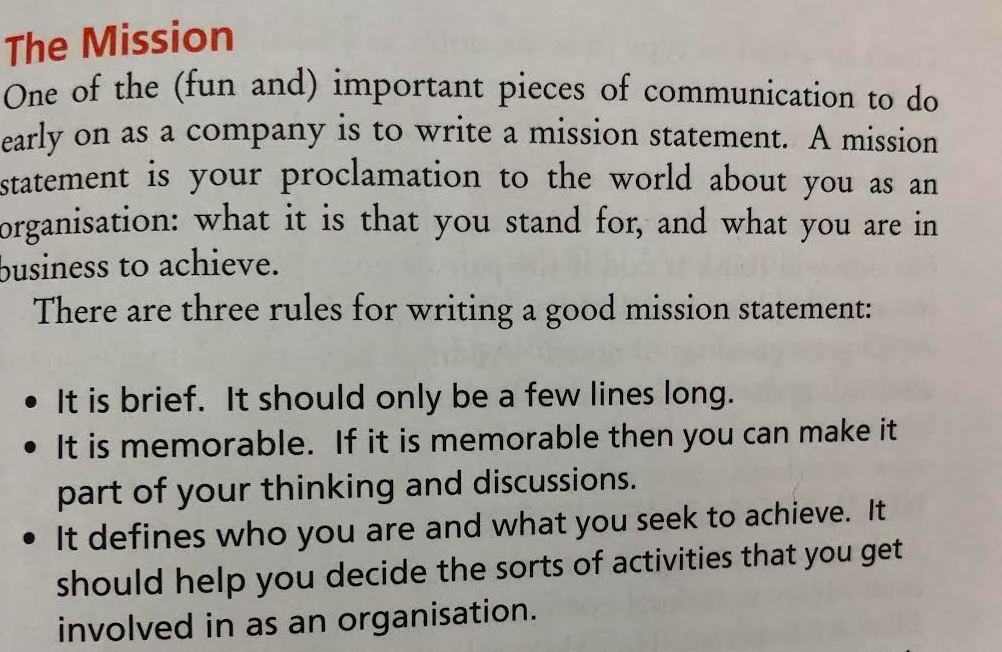

It is very important to keep a record of all your meetings so that you can keep track of your work schedule and be more organised.
Use the team minutes template to record all your company’s meetings.
Make a mission statement for your company. Refer to the example given.
-

Learning Intentions: We are learning to
Create a business
Success Criteria: I can
Make a business plan for MHJC Market Day
Activities
Test your personality using the following tool online
https://www.truity.com/test/enneagram-personality-test
Explore business ideas for MHJC market day
Select appropriate products for my company
-
EXPLORE / TŪHURA learning intentions:
- We are EXPLORING a range of products for MHJC Market Day.
- We are EXPLORING key business roles for a company.
- We are EXPLORING different ways of marketing.
FOCUS / ARONGA learning intentions:
- We are learning to make a business plan for MHJC Market Day.
- We are learning to select an appropriate product for MHJC Market Day
Success Criteria: I canMake a business plan for MHJC Market Day
Decide on a product for MHJC Market Day
Activities
Brainstorm possible products for MHJC market day. Make sure your team has the right skills and enough budget to create your products in order to make a profit.
Analyse the positive effect your product will have on the community. List them under the following four categories. Give at least three examples for each category. Record your discussions in your team meeting minutes.
Environmental. Do you use sustainable raw materials? Do you minimise wastage?
Social. Do you support people in need? Do you make your workplace safer?
Cultural. Do you include and celebrate diverse cultures?
Economic. Are your products better and more innovative? Do you support local businesses?
-

Kia ora Everyone
Learning Intentions: We are learning to (WALT)...
Develop an understanding of the 4P's of marketing
Identified and understand the importance of the the core skills that would be relevant for Market Day
Identify product/service ideas for a market fair, and organise and analyse these ideas in a decision grid, providing reasons for their final decision.
Identify the role that enterprise and technological practice have in shaping and contributing to our ‘Economic Community’.
Success Criteria: I can/have...
Understand how the 4P's of marketing relate to Market Day
Developed the key skills that is required for our Market Day and I understand the importance of these skills and will ensure that I will utilise these on Market Day
A range of possible ideas that would guide me in making my final product/s.
Activities:
Do now:Individual task: PMI Chart for skills – creativity, communication, planning and organising,interpersonal,time management.
TEAM : Together, Everyone, Achieves, More
- https://www.youtube.com/watch?v=tqNzEXkE4M0
-
Market Day assessment Instructions
Complete all tasks assigned to you on the Google classroom ( each group only needs to produce one document for each task).
Use a range of strategies to promote your product (survey, poster, visiting classrooms, stall labels etc)
Make your products and sell them on MHJC Market Day, which is on Wednesday, 23 September 2020.
Keep a record of your spending and earnings (cash book etc.)
You need to submit a Market Day report on MHJC. The report should contain the following informaiton.
Introduction
● Business name: Choose a name for your business
● People: List your team members and their roles in the business
● Mission: Develop a mission statement for your business
● Goals & Objectives: Set some goals for your business and list them
Marketing Strategies
● Product: Describe your product. Include a picture/photo. What is it? How is it
going to be packaged?
● Target Market: Describe the target market for your product.
● Price: How much will you sell your product for? How much will it cost to make
your product? How did you decide on the selling price? Use information from
your budget to explain?
● Place: Describe how you will set up your stall for market day. What equipment is
needed? How will you make your stall stand out? How will customers line up or
receive the product.
● Promotion: Describe the methods of promotion you will use to advertise and
promote your product before and during market day.
Finance
● Budget: Complete a budget to show all the costs involved with producing your
product and how much each team member will contribute to cover costs.
Decide how profits (or losses) will be shared.
Income Statement
Market Day
● Show evidence of market day by including the following photos:
● Finished product & packaging, stall, cash handling process, customers, promotional activities (posters etc.)
Evaluation of Market Day
● Individual reflections completed
-
Kia ora everyone
FOCUS / ARONGA learning intentions:
We are learning to create a business team
We are learning to make a business plan for MHJC Market DaySuccess Critieria
We have set up a company with members holding specific roles.
We have collected information about the needs and wants of our customers.
We have selected a product for MHJC Market Day.
Activities
We are working on our business plan this week. Please find attached an exemplar for you as a refence. -
PLAN & DO / WHAKAMAHI learning intentions:
We are planning for a Market Day so that we can sell our products to make a profit.
We are planning to manage a stall on Market Day
We are learning to prepare a budget
We are learning to design a product
We are learning to promote a product
We learning to produce a product for Market Day
Activities
We are following our Lockdown timetable this week. -
PLAN & DO / WHAKAMAHI learning intentions:
Learning Intentions: We are learning to (WALT)...
- To understand how to incorporate our skills and knowledge to Market day.
- To understand the uses of the marketing/advertising processes
Success Criteria: I can/have...
- I can apply my skills to the market day planning process
- I have understood the different methods of advertising
Activities:
- Manufacturing market day products.
- Complete challenges task/table -print resources
- Promoting and Advertising the stalls
- Creation of stall name and logo -use recycled cardboards to make signage
-
Learning Intentions: We are learning to (WALT)...
- To understand how to incorporate our skills and knowledge to Market day.
- To understand the uses of the marketing/advertising processes
Success Criteria: I can/have...
- I can apply my skills to the market day planning process
- I have understood the different methods of advertising
Activities:
- Manufacturing market day products.
- Complete challenges task/table -print resources
- Promoting and Advertising the stalls
- Creation of stall name and logo -use recycled cardboards to make signage
-
Learning Intentions: We are learning to (WALT)...
- To understand how to incorporate our skills and knowledge to Market day.
- To understand the uses of the marketing/advertising processes
Success Criteria: I can/have...
- I can apply my skills to the market day planning process
- I have understood the different methods of advertising
Activities:
- Complete challenges task/table -print resources
- Promoting and Advertising market day
- Finalise ingredients for the food items
- Quality checking of products
-
PLAN & DO / WHAKAMAHI learning intentions:
We are learning to (WALT)...
To understand how to incorporate our skills and knowledge to Market day.
Success Criteria: I can/have...
I can apply my skills to the market day planning process
Activities:
Refer to the checklist on google classroom
MARKET DAY - 21 October 2020.
-
PLAN & DO / WHAKAMAHI
Learning Intentions: We are learning to (WALT)...
To understand how to incorporate our skills and knowledge to Market day.
Success Criteria: I can/have...
I can make a business plan for the Market Day event
Activities:
Complete your business Plan on the Google Classroom
Make prototypes for your products at home
Finalise your list of materials, ingredients and equipment needed.
Prepare your online order form and share with the teacher.
-

Learning Intentions: We are learning to (WALT)...
Incorporate our skills and knowledge to Market day.
Success Criteria: I can/have...
I can promote my products through advertising
I can prepare for Market Day
Activities:
Brainstorm different ways to advertise for your products.
Make a poster or a banner to promote your products before and on Market Day.
Make a checklist for all the things I need to prepare for Market Day.
-


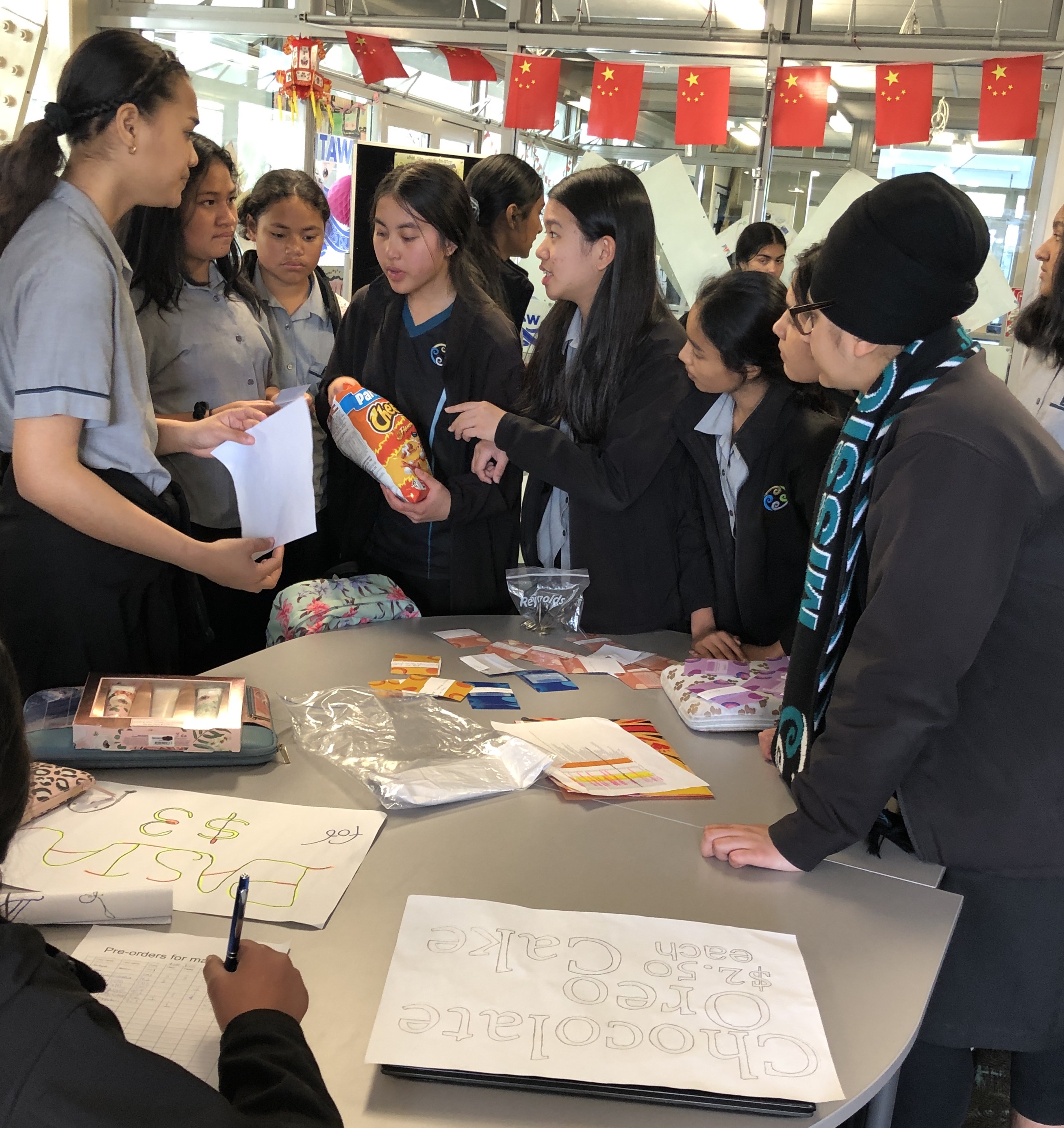
Kia Ora Everyone
Learning Intentions: We are learning to (WALT)...
Run a stall on MHJC Market Day
Keep a record of our finance
Success Criteria: I can/have…
Set up a stall and sell our products to customers
Take payments from customers and give changes
Balance my company’s spending and earning
Activities
Finally, our long anticipated Market Day is ON this week!
Please refer to your emails and your task on Google classroom for detailed instructions. -
REFLECT / WHAIWHAKAARO learning intentions:- We are learning to evaluate our Market Day experience
Success Criteria
We can identify factors which may impact our Market Day experience
We can critique our Market Day experience
We can make a conclusion about our Market Day experience
Activities
In your team, brainstorm all the factors which have impacted your Market Day experience. It could be positive or negative.
Do a PMI ( Plus, Minus, Interesting) chart for your Market day.
What will you do differently next time? Why?
Write a paragraph of self reflection about your Market Day.
The main thing is as long as you have learned something from your Market Day, it is all worth it!
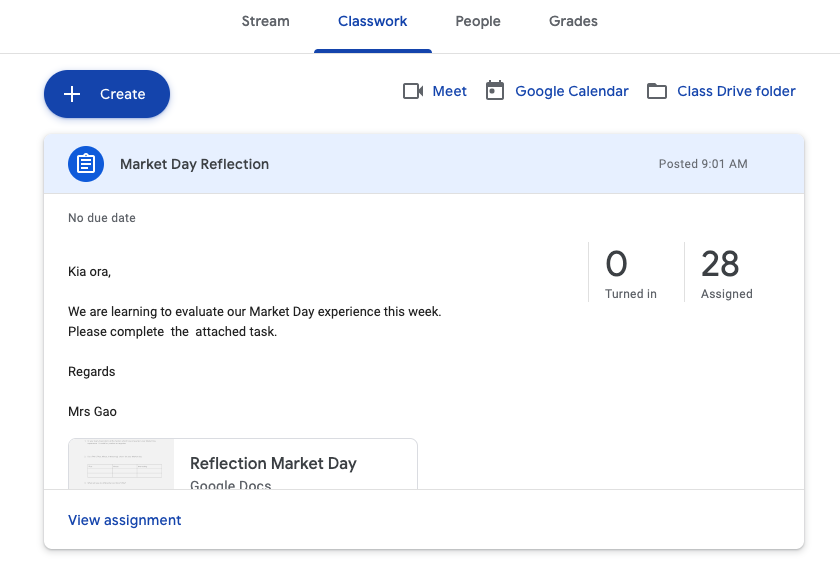
-
Learning Intentions
We are learning about the Fair Trading Act
Success Criteria
We can identify breaches of the Fair Trading Act
We can take appropriate actions according to the Fair Trading Act
Activities
We are learning about the Fair Trading Act and how to use it to protect consumer rights and hold producers accountable for their actions.
Watch the videos using the following link
Complete your task on Google Classroom
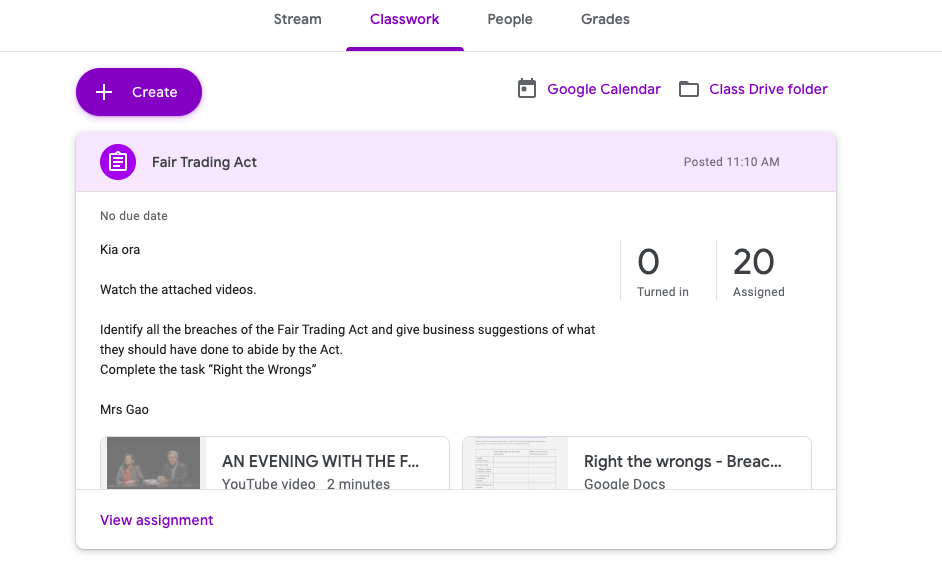
-
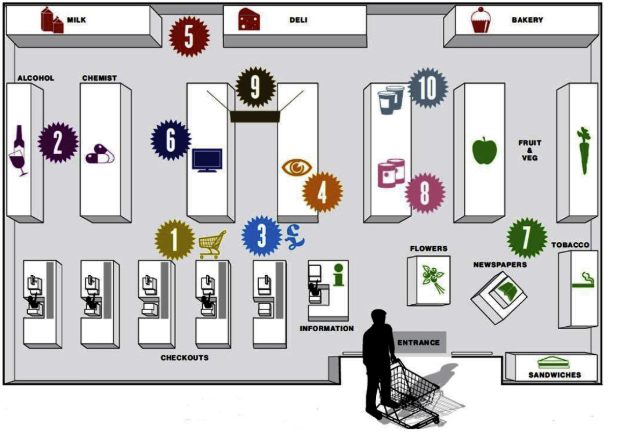 Kia Ora Everyone
Kia Ora EveryoneLearning Intentions: We are learning to (WALT)...
- to understand how producers and consumers exercise their rights and meet their responsibilities. wide eyes
- to understand how people view and use places differently
- to understand how people make decisions about access to and use of resources.
Success Criteria: I can/have...
- I have applied the concept of "consumerism" into my supermarket design.
- I have identified different tactics supermarkets and the media use to encourage 'consumerism' and applied them to the layout and design of my supermarket.
Activities:
- DO NOW: What programmes can you use to design your supermarket? Use the the resources below as a guideline to support you.
- Look at websites on supermarkets globally if you can undertake a virtual supermarket experience
- Videos of supermarket layouts
- Draft your supermarket layouts and design - Work in buddies for this task
Resources:
Designing software/ programs you can use "floor planner" "sweet home 3D" "Blender". Cardboard, glue and color paper
https://www.youtube.com/watch?v=jSt8G_o674o

-
Kia Ora Everyone
Learning Intentions: We are learning to (WALT)...
- to understand how producers and consumers exercise their rights and meet their responsibilities. wide eyes
- to understand how people view and use places differently
- to understand how people make decisions about access to and use of resources.
Success Criteria: I can/have...
- I have applied the concept of "consumerism" into my supermarket design.
- I have identified different tactics supermarkets and the media use to encourage 'consumerism' and applied them to the layout and design of my supermarket.
Activities:
- DO NOW: What programmes can you use to design your supermarket? Use the the resources below as a guideline to support you.
- Look at websites on supermarkets globally if you can undertake a virtual supermarket experience
- Videos of supermarket layouts
- Draft your supermarket layouts and design - Work in buddies for this task
Resources:
Designing software/ programs you can use "floor planner" "sweet home 3D" "Blender". Cardboard, glue and color paper
Use the grid below as a guideline/checklist to support you in designing your supermarket

-
Kia ora everyone
Learning Intentions: We are learning to (WALT)...
- Understand the overall operations of a supermarket
- understand how producers and consumers exercise their rights and meet their responsibilities.
- understand how people view and use places differently
- understand how people make decisions about access to and use of resources.
Success Criteria: I can/have...
- I have applied the concept of "consumerism" into my supermarket design.
- I have identified different tactics supermarkets and the media use to encourage 'consumerism' and applied them to the layout and design of my supermarket
Activities:
- Design your supermarket using the FTA and CGA and the concept of consumerism to design your supermarket.
-
Kia ora everyone
Learning Intentions: We are learning to (WALT)...
- Understand the overall operations of a supermarket
- understand how producers and consumers exercise their rights and meet their responsibilities.
- understand how people view and use places differently
- understand how people make decisions about access to and use of resources.
Success Criteria: I can/have...
- I have applied the concept of "consumerism" into my supermarket design.
- I have identified different tactics supermarkets and the media use to encourage 'consumerism' and applied them to the layout and design of my supermarket
Activities:
- Final design of supermarket due
-
Reflection on 2019 Global Studies
- What I have learned this year?
- What do I need to develop on in Global Studies?
Message from Teacher
It was a pleasure to teach you! Have a good holiday...
